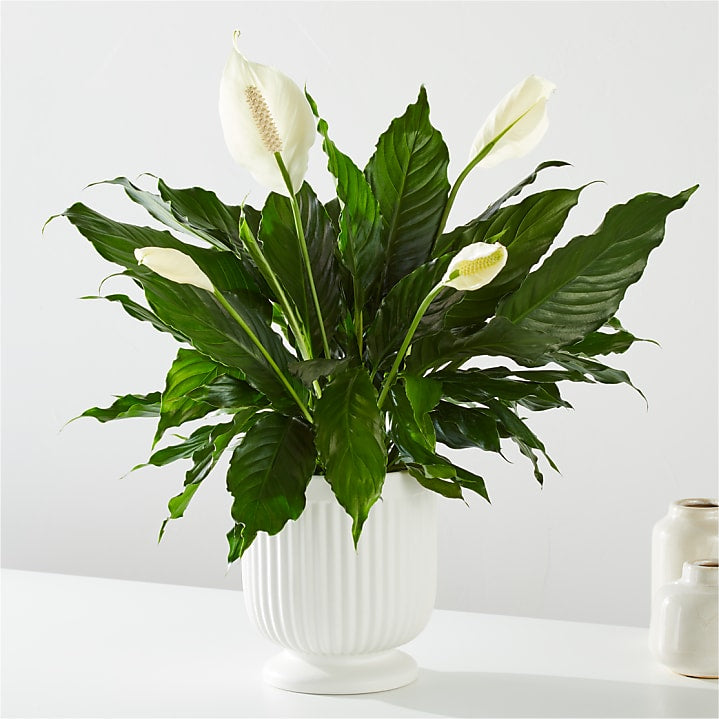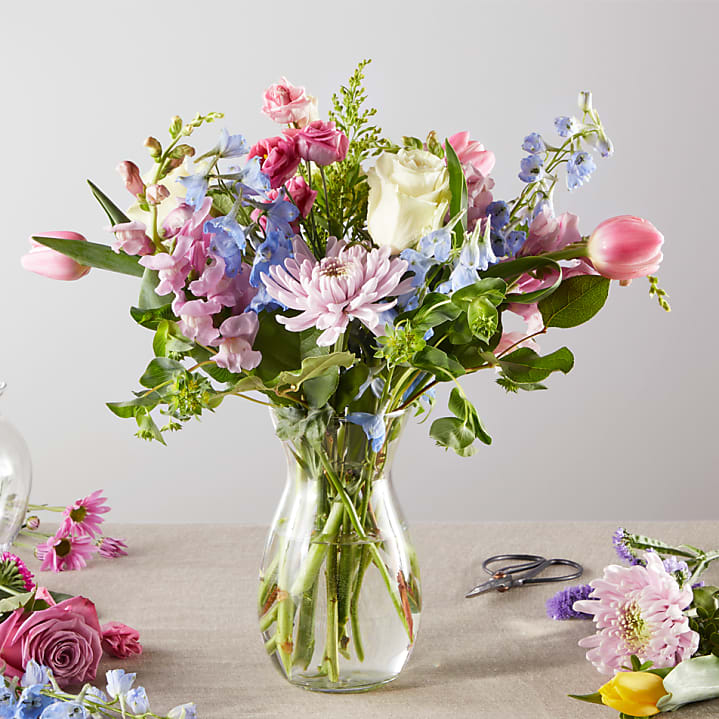START HERE
Religious Flowers and Plants
Celebrate your spirituality with a radiant bouquet of religious flowers from FTD. Our arrangements are available in a wide variety of colors and styles. We’re happy to deliver our best-selling flowers to brighten your loved ones day.

Shop Religious Flowers, Plants & More
Send same day flower delivery of religious bouquets from FTD that honor the spiritual, cultural, and faith-filled moments in people’s lives perfectly. And for life’s other occasions, shop all flowers to celebrate and honor all the important milestones, including birthday flowers delivery.
Religious Flowers & Plants FAQs
What flowers symbolize faith?
There are plenty of different flowers that symbolize faith, but there are some that are used widely across cultures and religions. Flower bouquets of roses are used in weddings for all different cultures, Passover flowers are used to adorn spaces during the holy time of the year, and other flowers like red roses, white lilies and more are used to decorate altars and religious spaces throughout the year.
How are flowers used for religious and cultural events?
Flowers are an extremely popular decorative element used for many of the religious and cultural events that make up people’s lives. Whether it’s a First Communion bouquet, strings of garland at a Hindu wedding or Passover flowers given as a gift, cultures all across the globe use flowers at religious and cultural events. Some flowers represent rebirth and new beginnings, making them ideal as religious Easter flowers. Others represent beauty and commitment and are used as wreaths at Muslim wedding ceremonies. Flowers with religious meaning have always played a significant role in spiritual and cultural events celebrating the beginning or end of life, love and marriage, and the strength of faith. They help to provide meaning and beauty.
Do flowers have different meanings within different religions?
Each type of flower can mean something different depending on the religion. For instance, white roses represent the Virgin Mary in Catholic Christianity. Flower wreaths and garlands are familiar sights at Hindu weddings and are used to signify the beauty of the bond between the betrothed couple. Funeral floral arrangements are also common among many cultures.
At Christian funerals, white flowers like carnations and lilies are common. These blooms are said to represent rebirth and peace, a comforting thought for many as they say goodbye to their loved ones. Yellow chrysanthemums are often found at traditional Chinese funerals. This flower is also important in other traditional Chinese cultural events and festivals and has a long history of significance. Contact us today for a sympathy flower delivery.
Which flowers are important for different religions?
You may be thinking about sending a bouquet and wondering which flowers are best for the different religious events celebrated by people all over the world. Here is a brief guide:
Christianity: Christians have used flowers in their religions since the beginning, but the meanings have shifted over time. Though they started as a link to paganism and decadence, they are now used to represent Christ’s suffering and sacrifice. White lilies — which are also used for big ceremonies and celebrations, like Easter — are usually white and used as a symbol of purity. The passion flower plays a significant role in Christianity, representing the crucifixion and the resurrection. Red roses can express celebration and love. They fill vases to overflowing at Christmas celebrations in homes and churches. Catholics often use red roses to represent the rosary.
Judaism: Fresh blooms are also an integral part of Judaism. Flowers given at Passover are usually arrangements of lilies, violets, irises and carnations — sent in shades of blue and white. Blue and white lilies and hydrangeas are also a frequent part of Hanukkah bouquets. Colorful bouquets play an important part of Shavuot — a celebration of God revealing the Torah on Mt. Sinai — because, when the Israelites arrived at the base of the mountain, it was blooming with flowers.
Islam: Flowers are not commonly used within the Islamic religion as compared to other religions, but their byproducts certainly are. Using rose water to sprinkle graves, Henna flowers and plants to create dark dye or citrus trees for mediation gardens and prayer areas are all great examples of how flowers are used within the Islamic community. In addition, events like funerals, weddings and certain religious ceremonies are sometimes filled with heavily scented roses and scattered palm leaves.
Hinduism: Flowers play an essential role in Hinduism and are used in many celebrations and prayer rites. The gorgeous lotus is one of the most important blooms. It represents beauty, purity, youth and fertility. Marigolds are often used to make garlands to honor Hindu gods and goddesses and are also popular in Hindu wedding celebrations.
Buddhism: Similar to Hinduism, Buddhism uses the lotus flower for major symbols and spiritual elevation. Plus, Buddhists also believe that the lotus flower is a metaphor for knowledge.























